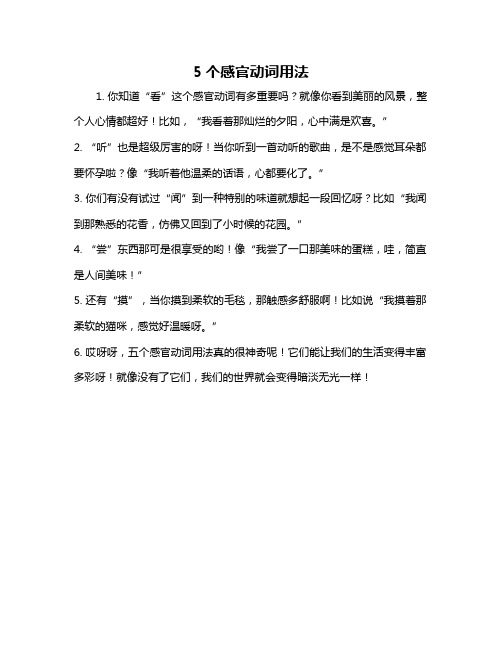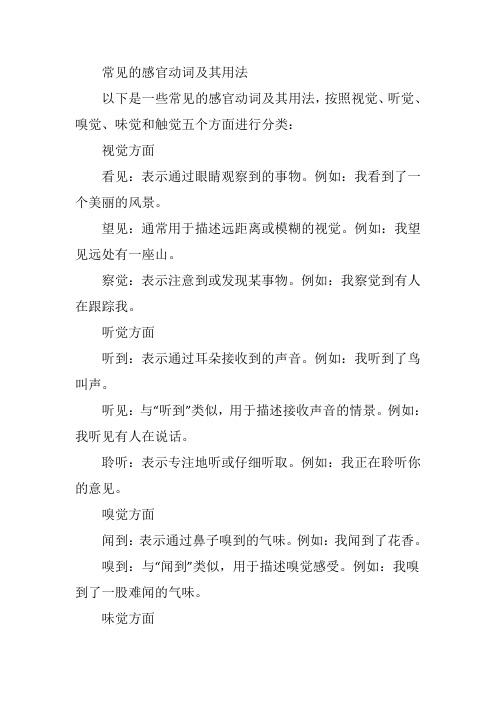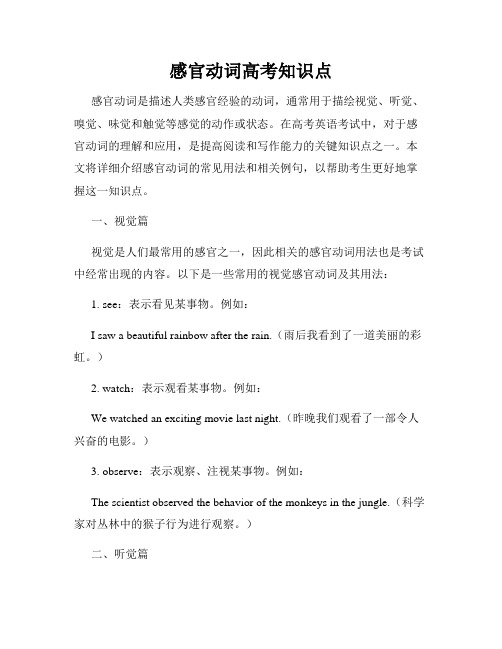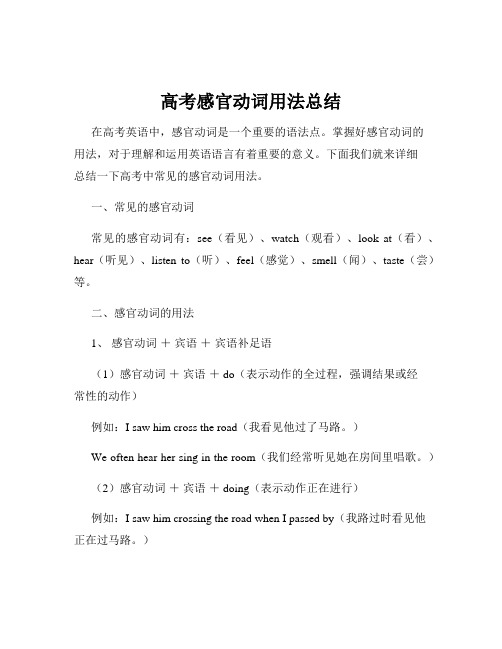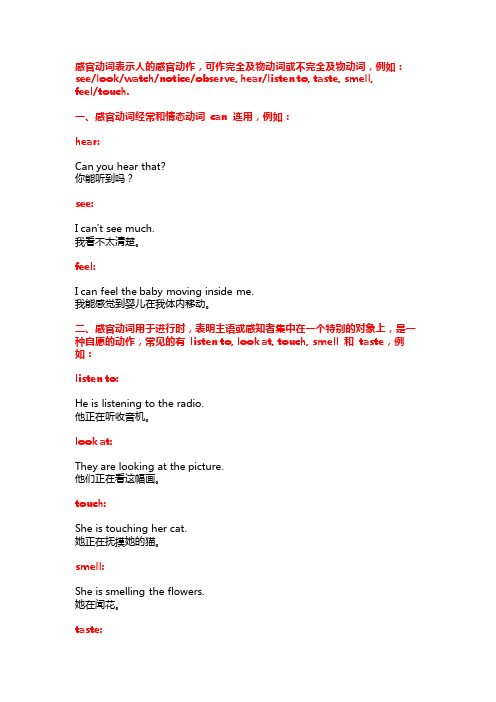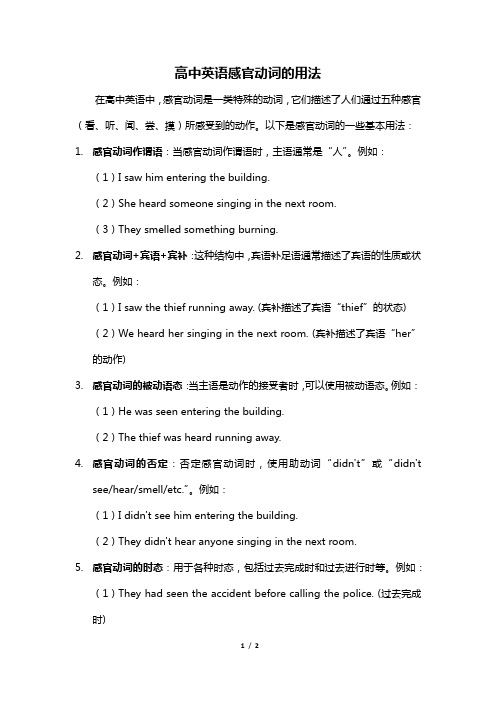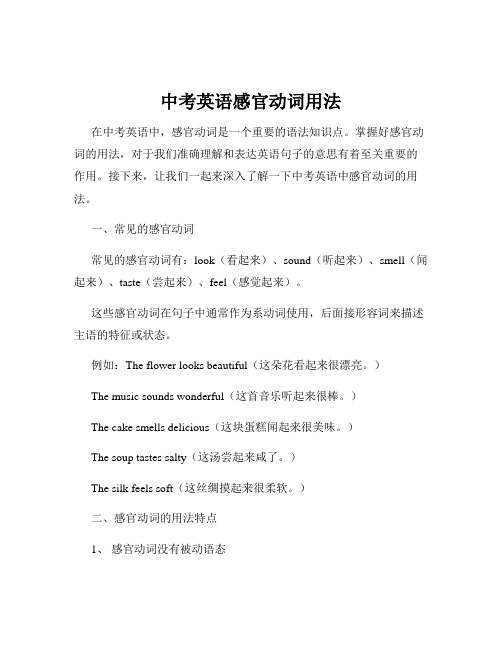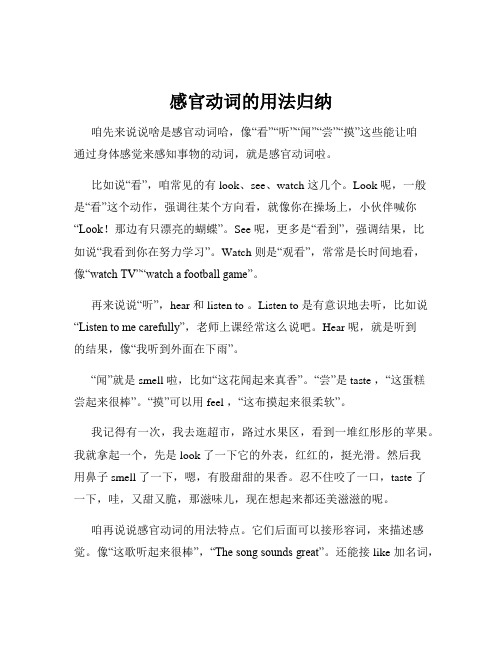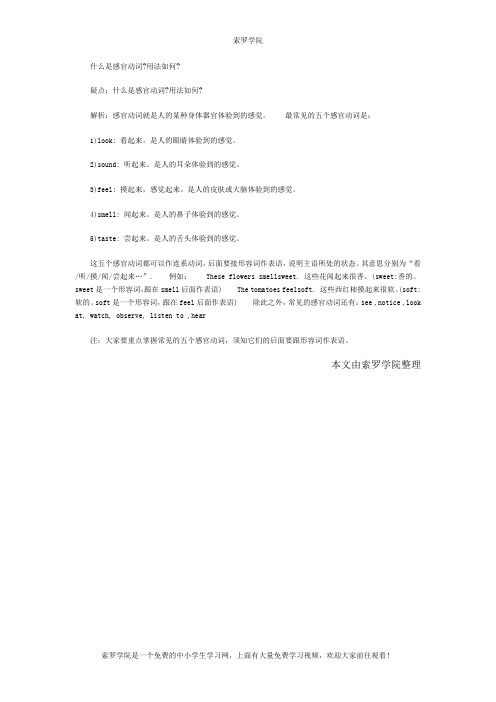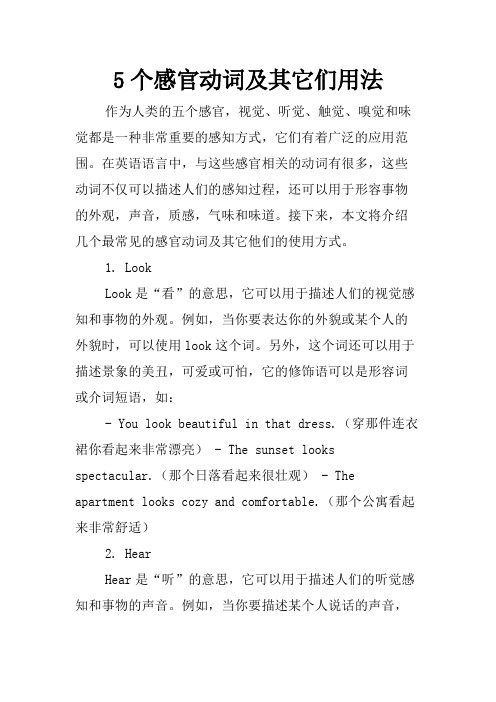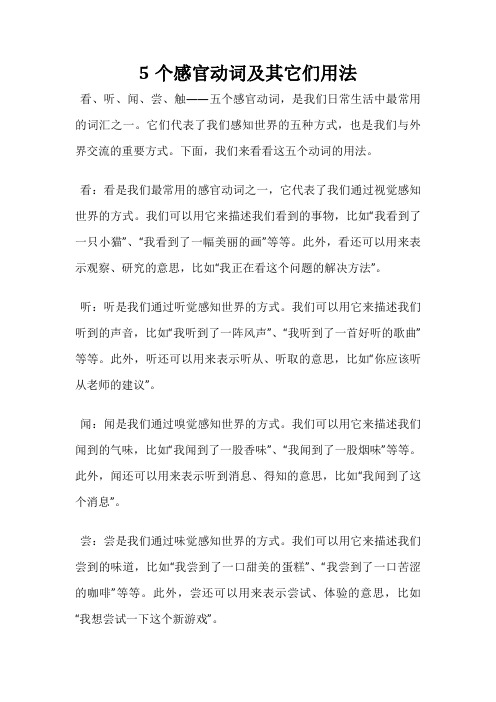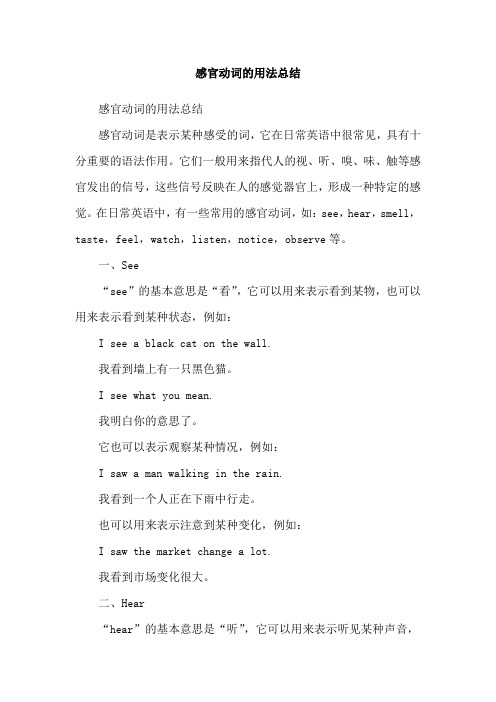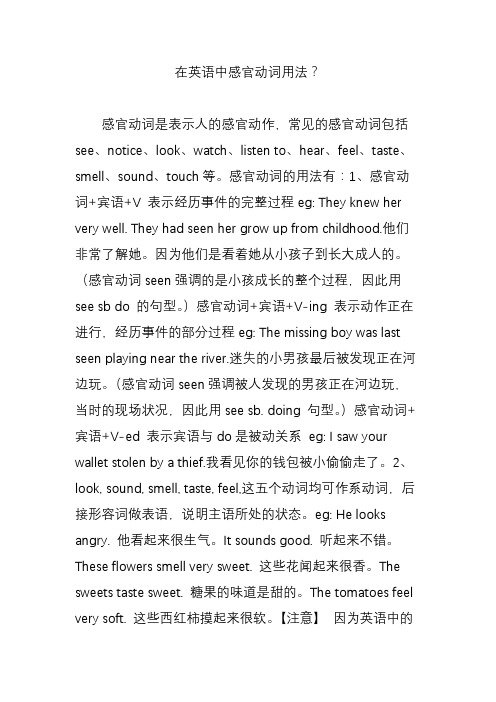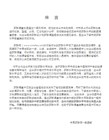6、其中look, sound, feel还能构成"look / sound / feel + as if +从句"结构,意为"看起来/听起来/感觉好像……"。
例如:I don’t like the taste of the garlic. 我不喜欢大蒜的味道。
She dresses in poor taste.她穿着没有品位。
look有外观,特色的意思,例:The place has a European look.此地具有欧洲特色。
The tomatoes feel very soft.这些西红柿摸起来很软。
2、这些动词后面也可接介词like短语,like后面常用名词。
例如:Her idea sounds like fun.她的主意听起来很有趣。
3、这五个感官动词也可作实义动词,除look(当"看起来……"讲时)只能作不及物动词外,其余四个既可作及物动词也可作不及物动词,此时作为实义动词讲时其主语一般为人。
例如:She smelt the meat.她闻了闻那块肉。
I felt in my pocket for cigarettes.我用手在口袋里摸香烟。
4、taste, smell作不及物动词时,可用于"taste / smell + of +名词"结构,意为"有……味道/气味"。
一、感官动词
1、感官动词(及物动词)有:see/notice/look at/watch/observe/listen to/hear/feel(Vt)/taste(Vt)/smell(Vt)
2、连缀动词(含感官不及物动词) be/get/become/feel/look/sound/smell/taste/keep/stay/seem/ appear/grow/turn/prove/remain/go/run
例如:The air in the room smells of earth.房间里的空气有股泥土味。
5、它们(sound除外)可以直接作名词,与have或take构成短语。
例如:May I e a taste of the mooncakes?我可以尝一口这月饼吗?taste有品位、味道的意思。
二、具体用法:
1、see, hear, smell, taste, feel,这五个动词均可作连系动词,后面接形容词作表语,说明主语所处的状态。其意思分别为"看/听/闻/尝/摸起来……"。除look之外,其它几个动词的主语往往是物,而不是人。
例如:These flowers smell very sweet.这些花闻起来很香。
三、典型例题
1、They knew her very well. They had seen her ___ up from childhood.
A. grow B. grew C. was growing D. to grow
答案:A。因题意为,他们看着她长大,强调的是成长的过程,而非正在长的动作,因此用see sb do sth 的句型。
I saw him work in the garden yesterday. 昨天我看见他在花园里干活了。(强调"我看见了"这个事实)
I saw him working in the garden yesterday.昨天我见他正在花园里干活。(强调"我见他正干活"这个动作)
2、The missing boy was last seen ___ near the river.
A. playing B. to be playing C. play D. to play
答案A。本题强调其动作,正在河边玩,应此用see sb. doing sth句型。有时hear等感官动词后加doing 表示正在听。
例如:It looks as if our class is going to win.看来我们班好像要获胜了。
7、感官动词+do与+doing的区别:
see, watch, observe, notice, look at, hear, listen to, smell, taste, feel + do 表示动作的完整性,真实性;+doing 表示动作的连续性,进行性。
